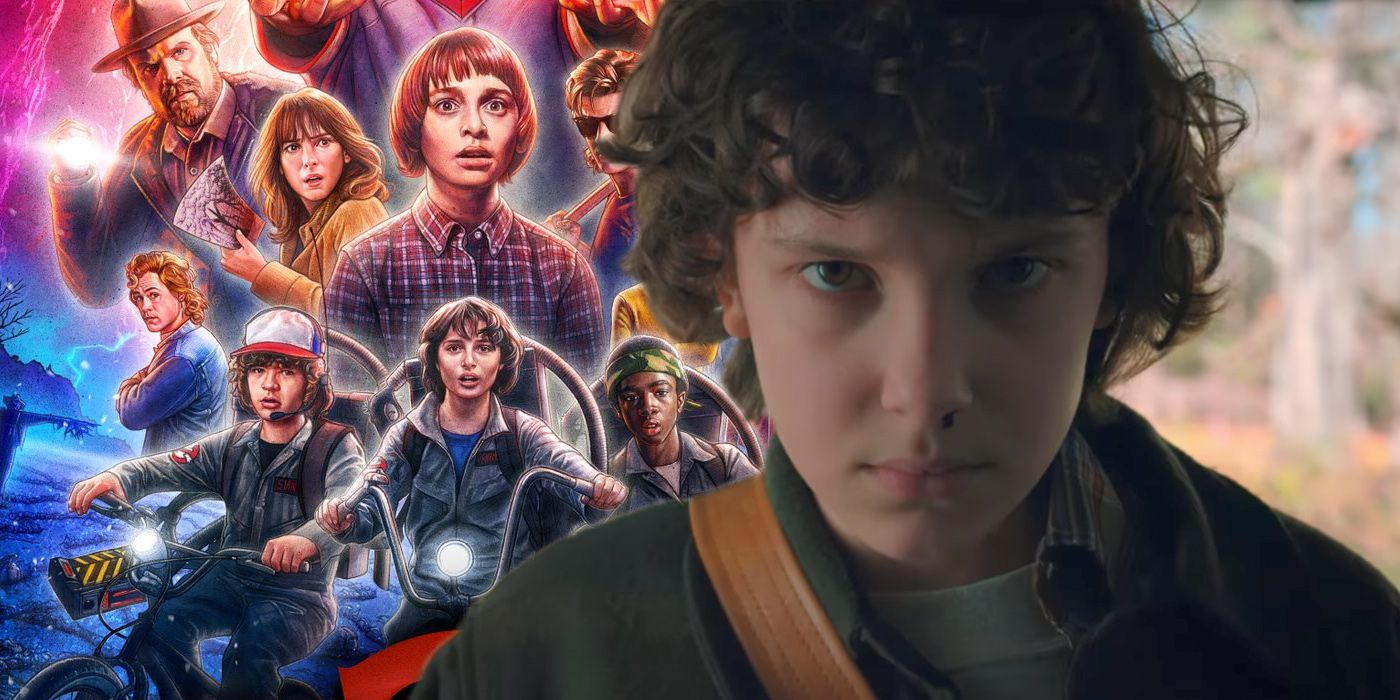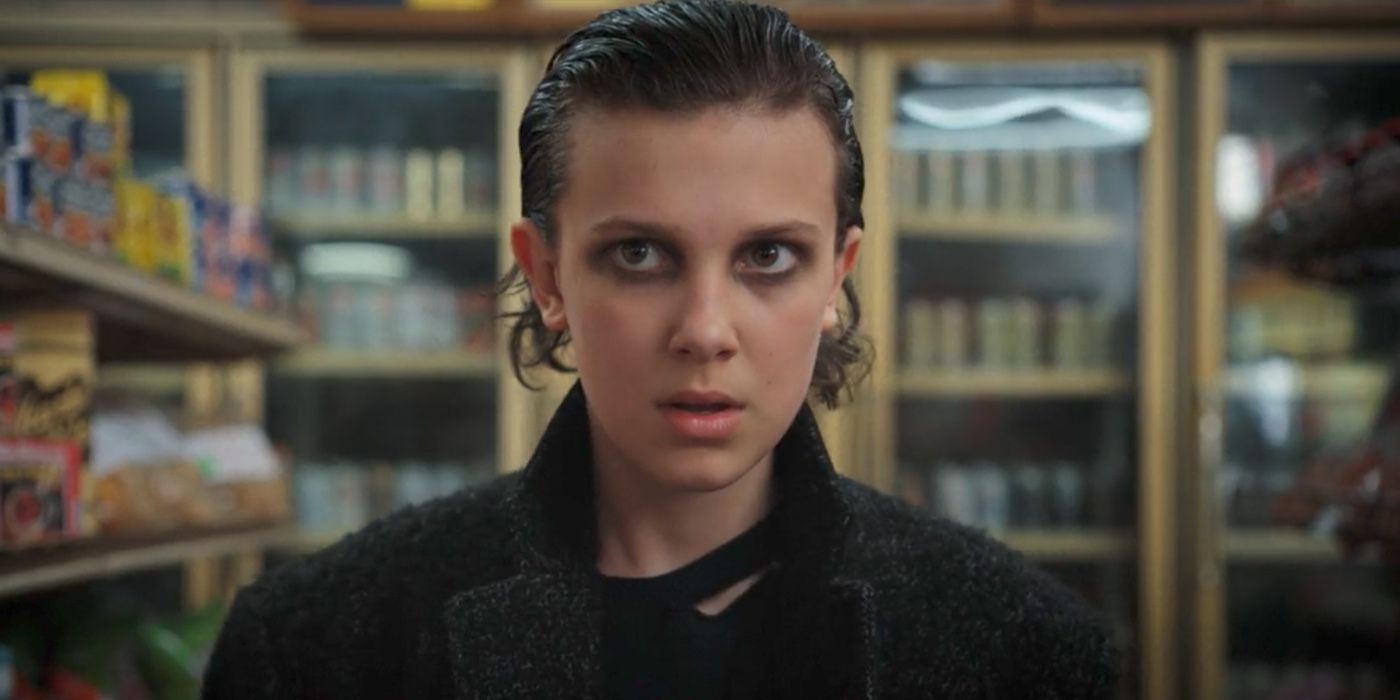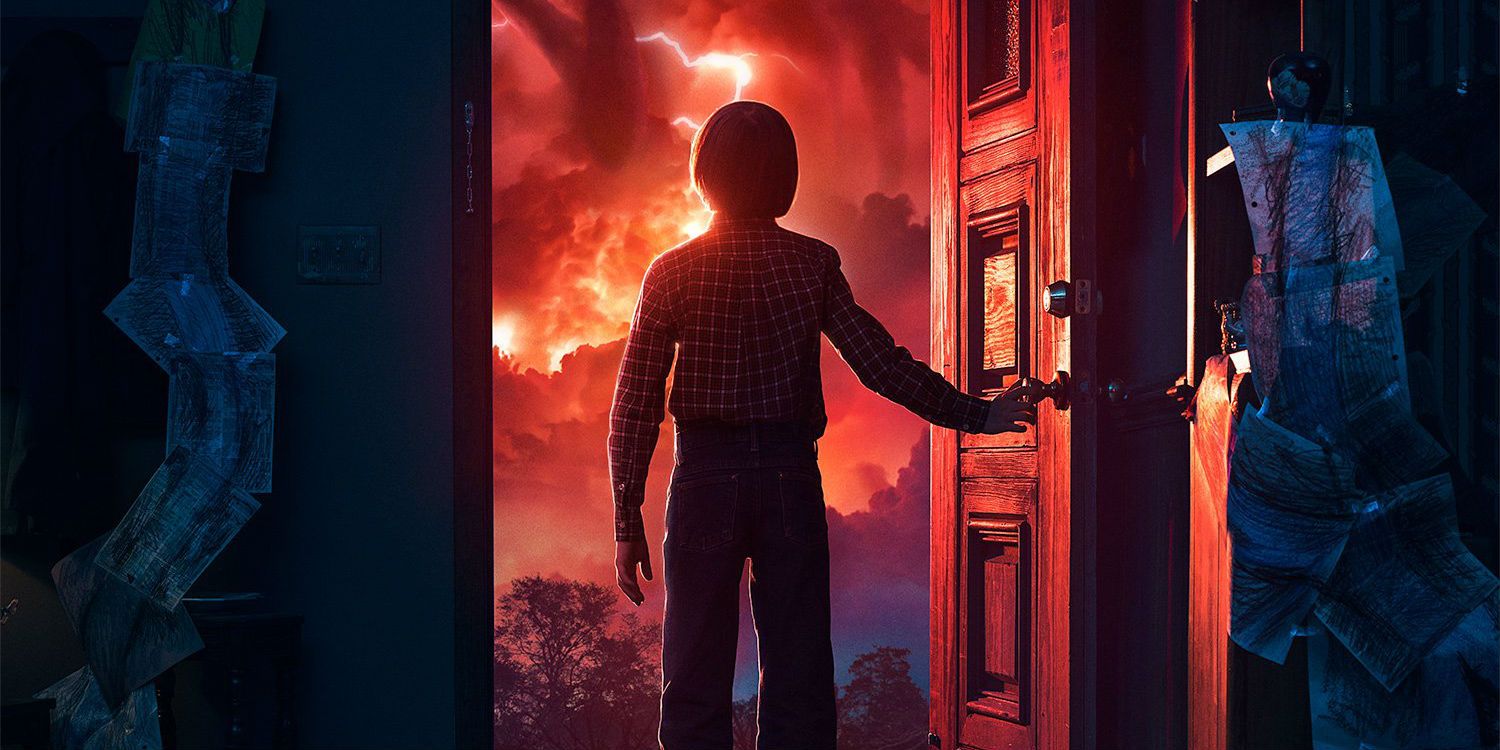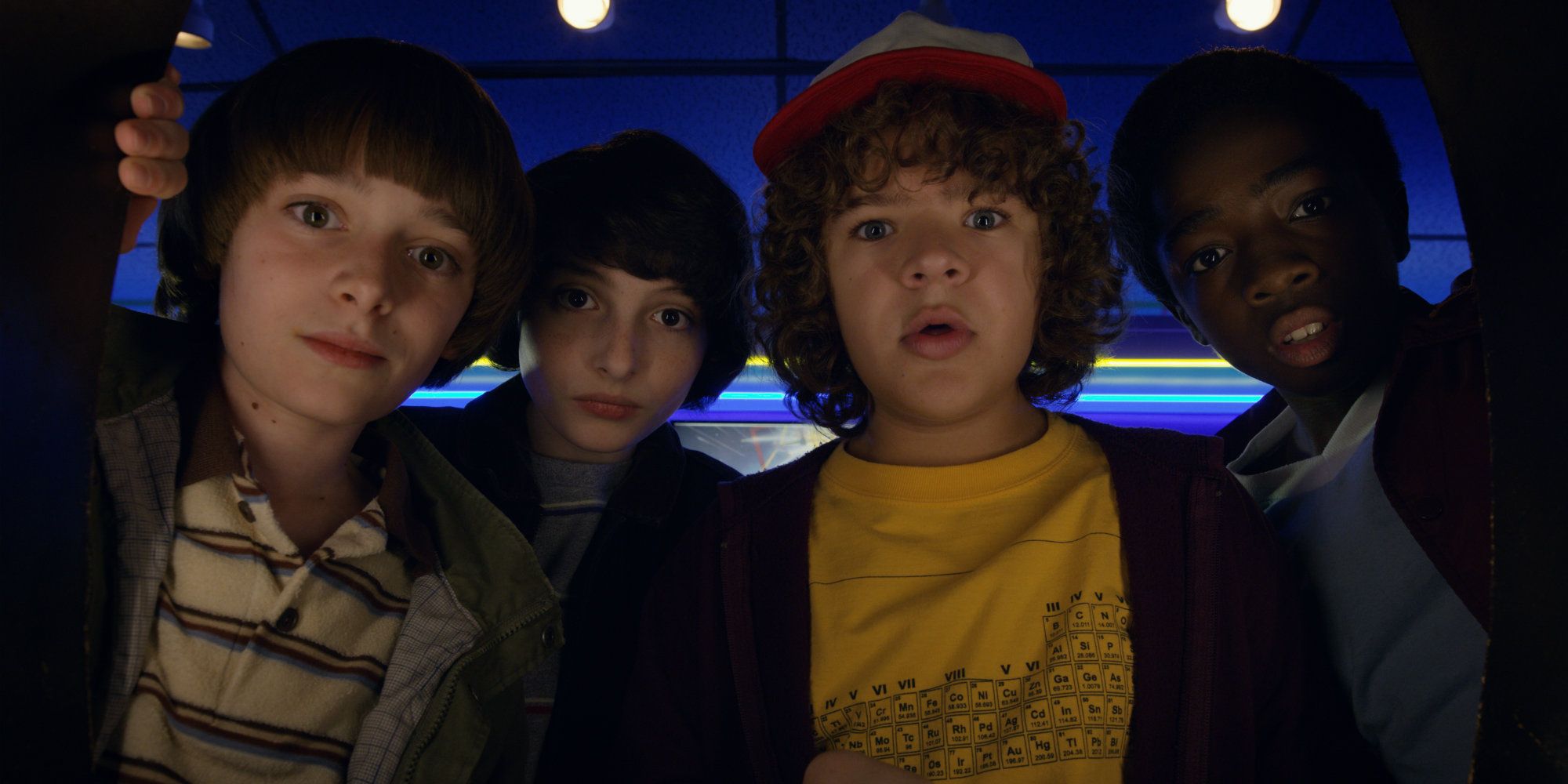Spoilers for Stranger Things Season 2.
-
Stranger Things is back for a second season that is, by all accounts, better than the first. However, that doesn't mean one irritating problem with the first year hasn't been carried over to the new run: the show's bizarre timeline confusion.
To be clear, when we're talking timeline, we're not talking about Stranger Things' time period. The show is set in the early 1980s and doubles-down on the era for nostalgic effect, but it also inevitably makes some flubs; characters drive cars made in the wrong year and the kids reference movies they had no reasonable way to be so au fait with. However, these are hardly show-breaking problems and will only negatively impact your viewing experience if you really dig deep: the only thing worse than people pointing these issues out are those who craft elaborate fan theories trying to explain a parallel universe.
Related: Stranger Things Season 2 Brings New Mysteries & New Fears
No, we're talking about illogicies within the world that Stranger Things itself establishes, real-world parallels be damned. For the most part, the Duffer Brothers have constructed a really tight universe, one that even stays consistent through the expansion of a sequel, yet there's a narrative problem that remains.
Joyce's Bad Memory and Eleven's Teleporting Powers
Like the first season, Stranger Things 2 takes place over a week (dates worked outwards from the Halloween episode): the prologue is set on October 28, 1984, the rest of the premiere the day before Halloween, Chapter Two October 31 itself, Chapter Three November 1 and Chapter Four the end of that day and most of November 2. Then Chapter Five is November 3, Chapter Six and Chapter Seven concurrently November 4 and the final two episodes are the late night/early morning of November 5. That's a pretty easy chronology and yet Things can't quite grasp it.
At the start of Chapter Four - so on November 1 - Joyce Byers says to son Will that she saw his video from "Halloween night", an incredibly odd turn of phrase when you consider that in-universe the recording in question was from yesterday. Nobody in their right mind on November 1 would call "last night" Halloween, yet here it is happening. And we're not just being suddenly pedantic with this - in Season 1 Joyce likewise overestimated the time passage since Will's death, revealing a recurring issue with the show.
It's exacerbated when you take the season's separate narratives and try to put them alongside each other. Eleven leaves Hawkins to visit her mother (of unknown location but in the same state) on November 3 (Chapter Five) and returns on the night of November 4 (Chapter Eight) to save the group from the Demodogs. In those two days, she managed to travel to Chicago, Illinois - where she spent the whole day and evening of November 4 - before heading back to Hawkins, Indiana (which has no location within the state but by geography is presumably middle-to-south) in record time. To the show's credit, the visions she has of the facility under attack do line up here, but when you consider that's a 500+km round trip with a day layover things get far too stretched.
Related: Stranger Things 2's Ending Was Teased in the Opening of Season 1
Admittedly these are sparse and minor complaints in the grand scheme of the show. To make that clear: none of this damages Stranger Things massively and it's definitely nothing close to the similar pacing issues Game of Thrones suffered in its recent seventh season. But it's still a curious problem, especially as the reason why may be the strangest thing of all.
What's Up With The Stranger Things Timeline?
Plainly, it appears like Stranger Things treats each episode like a new day. Characters continue on their various interlinking threads hour to hour besides, yet when it comes to addressing the actual passage time each opening title is a new dawn, even when everything suggests otherwise. This isn't an overly complex show narrative-wise - everything goes in a linear direction and thanks to its strong cultural influences you have a good idea of what's going on intuitively - but that only makes that this keeps happening more confusing; if you pick up on these moments, you'll spend ages trying to dissect the very simple timeline trying to justify all this confusion.
And the simple answer there is no explanation. We're not meant to think about this too much, rather just let it go and keep going - Joyce was just speaking out of turn and story-wise Eleven needed to travel afar for her arc to work as well as it does. But that handwaving is hard to swallow when everything else in the show is so well constructed; how can you have astutely written teenagers of all description and forget how many days have elapsed in your story?
It's Because of Netflix's Release Strategy
The answer may lie in the Netflix release method. First up, you're only really going to spot this slip-up on binge watch when the specifics of what happened before are fresh in your mind. However, the streaming itself may the root cause too.
Being on Netflix is usually a real source of freedom. There aren't the restrictions of even cable channels and, when it comes to storytelling, creators are given free reign (look at how Hollywood cartoon comedy BoJack Horseman has become the primo cultural dissection of depression). In many ways, this bears fruit for Stranger Things. It can go, well, stranger, and invest time into more out there ideas (Episode Seven will divide audiences regardless of their openness to the timeline). The pacing also benefits from a non-regular release structure, with episodes varying between 45 minutes and 1 hour in length depending on what was deemed suitable by the creatives.
Related: Stranger Things: 15 Unresolved Mysteries And Plot Holes
However, Netflix also brings with it a variable consumption method. Some will binge the entire show in one go, some will watch one a week akin to standard viewing habits, while other may scattershot consume bit by bit. Episode-to-episode, this typically leads to a narrative structure that straddles the line between traditional episodic and Golden Age serialized TV; each episode aims to stand by itself so single-serving viewers leave satisfied, yet there's a strong overarching thread to keep bingers going "one more before bed". This is a different approach to your usual TV show and its good and bad effects can be seen across the service's output, perhaps most prominently with House of Cards and the Marvel Netflix shows (when they're hot they're scorching, but can often feel bloated).
The main thing to take from all this is that Netflix creates content to appeal to its audience, on which has an awful lot of data; they fit their shows to you. And, making the fair assumption that the average consumption of a season across all Netflix users is around one episode a night, that leads them to having Stranger Things feel like it's going at a rate of one day per episode: while to Joyce and Will Halloween was just yesterday, to the average viewer it was in fact two days ago and thus the night should be clarified; and Eleven's journey would be completely manageable with a few extra day's time. It bothers us, but won't even be detected by most.
-
Overall, the discussed effect of being on Netflix is less pronounced with Stranger Things than its contemporaries; each season runs as a complete story where you can dip in and out at any point. However, that "once a day" viewing habit appears to have manifested with these moments of reference.
It's ultimately a quirk and definitely not one that damages the show. Stranger Things 2 is, altogether, a great season of television. It's dramatic, it's funny, it's emotional. It's so damn good it comes closer than perhaps anything before to blurring the lines between the big and small screen. But that makes it a shame that the show has these niggling marks of its creation. Here's hoping that, like how many of the slight problems with Season 1 were dealt with in the new run, any such issues are gone when Stranger Things returns next year.




